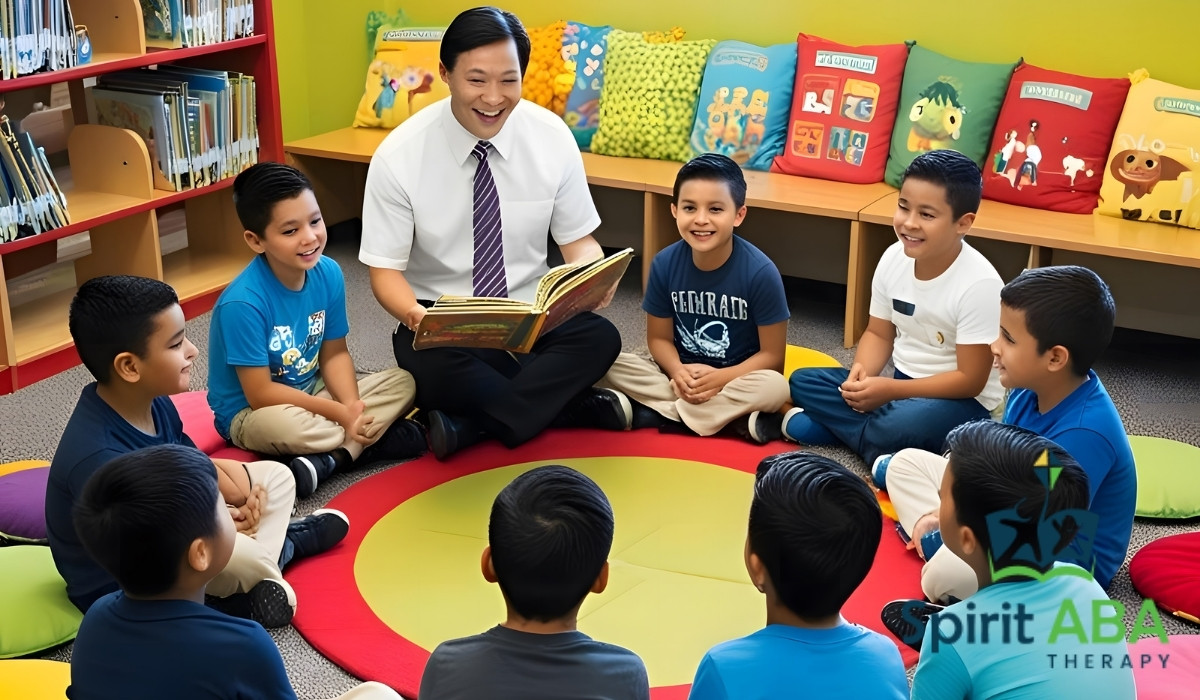Key Points:
- Teaching social cues to children with autism is possible and effective with patience and structured strategies.
- Social skills can be taught through modeling, practice, and supportive environments tailored to the child’s needs.
- Parents and caregivers play a crucial role and can partner with professionals to build their child’s confidence and communication.
Sometimes it feels like everyone else just “knows” how to act in social situations — when to smile, how to join a conversation, or what a certain look means. For children with autism, though, these unspoken rules can feel like a foreign language. Teaching social cues autism-friendly ways is not only possible but also essential for building confidence and meaningful connections.
Can Children With Autism Learn Social Cues and Skills?
Yes — with the right guidance and support, children with autism can absolutely learn social cues and skills. Teaching social cues autism-appropriately means breaking down the hidden rules of communication into clear, understandable steps. Many parents worry that their child won’t ever grasp things like facial expressions, turn-taking, or body language, but these skills can be taught just like reading or math.
The key is recognizing that these social skills may not come naturally and that’s okay. Instead of expecting a child to “pick up” on them, parents, therapists, and teachers can use intentional teaching techniques. This includes modeling, practicing, and creating opportunities to generalize these skills in real-life settings.
Why are Social Cues Difficult for Children With Autism?
Children with autism often see and interpret the world differently. They may focus more on literal meanings and have difficulty noticing subtle, nonverbal signals like a shrug, a sigh, or a change in someone’s tone of voice. Some common reasons social cues feel challenging include:
- Difficulty interpreting facial expressions or gestures.
- Trouble understanding sarcasm, idioms, or jokes.
- Anxiety or sensory overload in social situations.
- Preference for predictable routines over unpredictable social dynamics.
Knowing these challenges helps adults approach teaching in a way that feels respectful and supportive rather than frustrating for the child.
How to Start Teaching Social Cues Autism-Friendly Ways
Helping a child build social skills starts with meeting them where they are. Teaching social cues autism-friendly means starting small and choosing skills that are both useful and achievable. Here are practical steps to begin with:
Choose One Skill at a Time
Instead of tackling everything at once, focus on one skill — like making eye contact or understanding when someone is happy or upset. Mastering one small step at a time builds confidence.
Use Visual Supports
Many children with autism are visual learners. Use pictures of faces, videos, or flashcards showing different emotions and actions. Some parents even use storyboards or comics to illustrate conversations and outcomes.
Model the Behavior
Demonstrate what the skill looks like in real life. If teaching how to join a group playing, show how to walk up, say “Can I play?” and wait for a response.
Practice in Safe Settings
Role-play at home or in therapy before trying skills in unpredictable environments like a playground. This builds comfort and familiarity.
 Helpful Activities for Teaching Social Skills
Helpful Activities for Teaching Social Skills
When teaching social cues and skills, structured activities can make learning more engaging and effective. Here are some activities that work well:
Role-Playing
Practice common scenarios, like talking with a friend or asking for help. This allows the child to rehearse in a low-pressure setting.
Emotion Charades
Take turns acting out emotions and guessing what they are. This helps children recognize feelings in others.
Video Modeling
Watch short clips of people interacting appropriately, then discuss what the child observed and how they might do the same.
Social Stories
These are personalized short stories that explain social situations and expected behaviors in a clear, simple way.
Peer Buddy Programs
Pair your child with a patient, understanding peer who can model behaviors and provide opportunities for practice in natural environments.
Encouraging Generalization of Social Skills
One common challenge is helping children use their new skills in real-world settings, not just during practice. Generalization happens when they apply what they’ve learned across different people, places, and situations.
Here are some ways to promote generalization:
- Practice the same skill in multiple settings — at home, at the park, at school.
- Work with different people so the child learns to adjust their communication.
- Provide gentle reminders and praise when the child uses a skill outside of practice time.
- Gradually increase the complexity of social scenarios as confidence grows.
Supporting Emotional Regulation Alongside Social Skills
Social interactions can feel overwhelming, and emotions often run high. Teaching emotional regulation goes hand-in-hand with teaching social cues because it helps children stay calm and engaged.
Some strategies include:
- Teaching deep breathing and calming techniques for stressful situations.
- Helping the child recognize when they’re starting to feel upset or anxious.
- Creating a safe space or signal they can use when they need a break.
Working With Professionals to Strengthen Social Skills
Parents don’t have to do this alone. Many professionals specialize in teaching social skills to children with autism, including speech therapists, occupational therapists, and Board Certified Behavior Analysts (BCBAs). Structured therapy programs, like Applied Behavior Analysis (ABA), offer evidence-based strategies that can significantly improve social understanding and interaction.
Collaborating with professionals can also help tailor strategies to your child’s unique strengths and needs, making progress more likely and more sustainable.
Get Support Through Spirit ABA
Building social skills and understanding social cues can transform a child’s life, opening doors to friendships, confidence, and independence. Spirit ABA is here to help families on this journey, offering compassionate and evidence-based ABA therapy in Colorado, Iowa, and Nebraska.
If you’re looking for guidance, support, and personalized strategies to help your child thrive socially and emotionally, reach out to us today. Together, you can build a strong foundation for your child’s success — one skill at a time.


